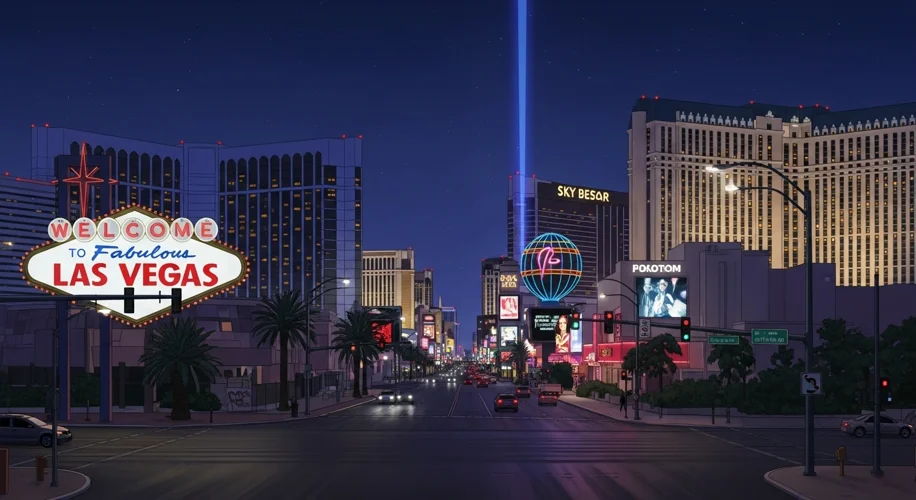The phrase “Has hell frozen over?” often gets tossed around when something utterly unexpected happens. Well, some are starting to whisper that about Las Vegas. Reports suggest tourism in the city, long a beacon of bright lights and big spending, might be in a bit of trouble. As someone who’s spent a career watching how technology reshapes our world, I can’t help but look at this situation through a historical lens.
Cities, much like technology, are constantly evolving. They have their boom times and their periods of quiet. Las Vegas is no stranger to this cycle. Think back to earlier eras – every major city has faced challenges, whether it was economic downturns, shifts in transportation, or changing tastes. What’s different now is the speed and the nature of the forces at play.
We’re living in an age of rapid technological disruption. Online entertainment, streaming services, and even virtual reality experiences are competing for our attention and our dollars in ways that were unimaginable just a few decades ago. Why travel across the country for a show when you can experience something almost as immersive from your living room? This isn’t about replacing Vegas; it’s about new forms of leisure emerging.
Consumer behavior is also shifting. There’s a growing trend towards experiences over material possessions, but even those experiences are being re-evaluated. Are people looking for the same kind of large-scale, high-cost entertainment that defined Vegas for so long? Or are they seeking more personalized, perhaps more local or niche, activities?
Beyond technology and consumer habits, broader economic forces are always at play. Inflation, global economic stability, and even shifts in discretionary spending can all impact a city that relies so heavily on people having money and the desire to spend it on travel and entertainment. It’s a delicate balance.
Looking back at past technological shifts, like the rise of personal computers or the internet, we saw periods of adjustment. Industries that didn’t adapt often faltered. Cities that relied on older economic models faced similar challenges. The key for survival and growth has always been adaptation.
So, what does this mean for Las Vegas? It’s too early to declare anything definitive. Cities are resilient. They have a way of reinventing themselves. Perhaps this is a moment for Las Vegas to innovate, to find new ways to attract visitors, or to cater to emerging trends in travel and entertainment. It could be a chance to leverage technology not just for gaming, but for creating unique, personalized experiences that can’t be replicated elsewhere.
My perspective, honed by years in the tech world, is that we should watch this closely. It’s not just about Vegas; it’s a case study in how major hubs adapt to a world where technology and changing societal values are constantly reshaping the landscape of leisure and commerce. The challenge isn’t to resist change, but to understand it and to steer it thoughtfully.

